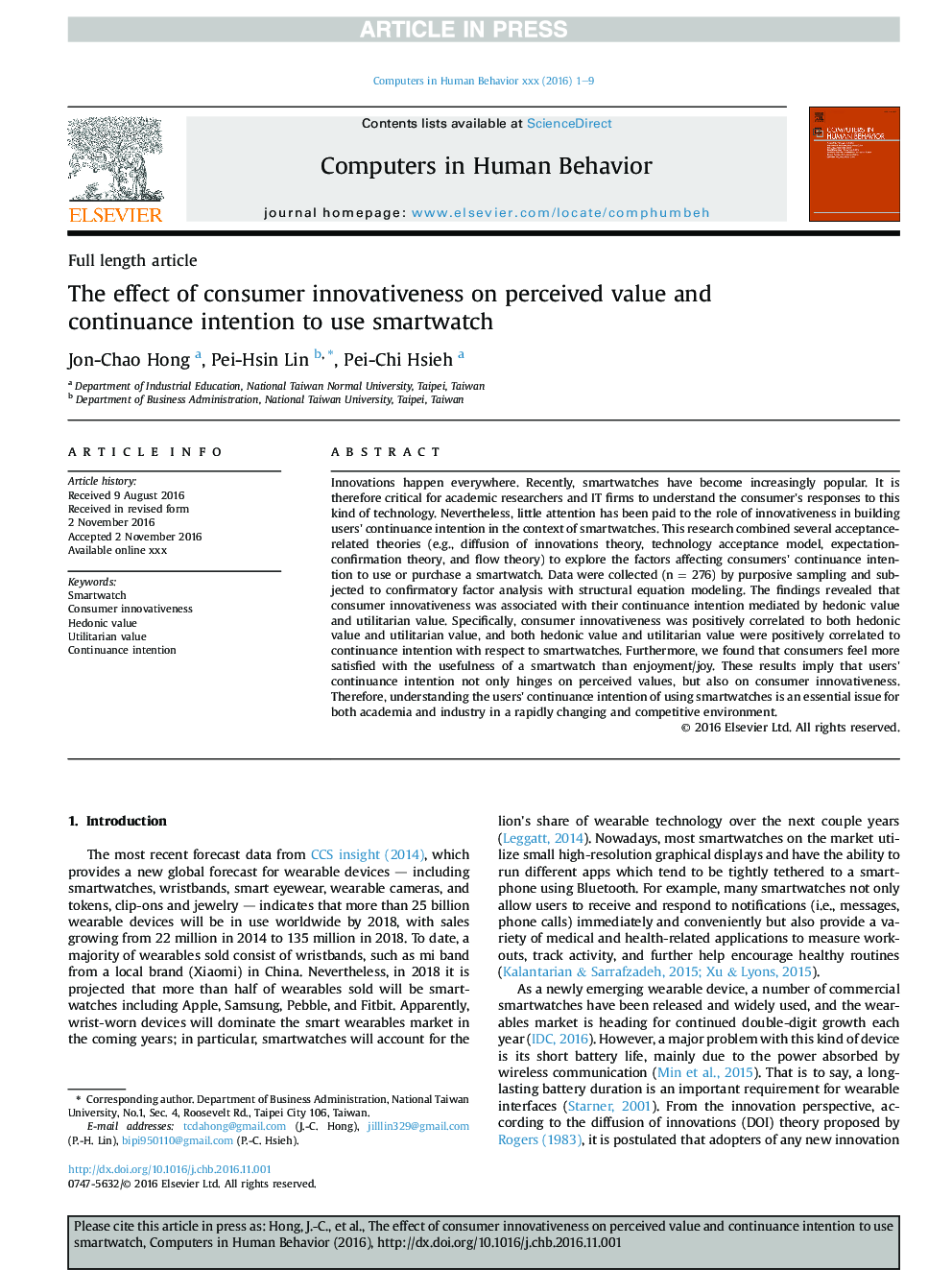| کد مقاله | کد نشریه | سال انتشار | مقاله انگلیسی | نسخه تمام متن |
|---|---|---|---|---|
| 4937597 | 1434624 | 2017 | 9 صفحه PDF | دانلود رایگان |
عنوان انگلیسی مقاله ISI
The effect of consumer innovativeness on perceived value and continuance intention to use smartwatch
دانلود مقاله + سفارش ترجمه
دانلود مقاله ISI انگلیسی
رایگان برای ایرانیان
کلمات کلیدی
موضوعات مرتبط
مهندسی و علوم پایه
مهندسی کامپیوتر
نرم افزارهای علوم کامپیوتر
پیش نمایش صفحه اول مقاله

چکیده انگلیسی
Innovations happen everywhere. Recently, smartwatches have become increasingly popular. It is therefore critical for academic researchers and IT firms to understand the consumer's responses to this kind of technology. Nevertheless, little attention has been paid to the role of innovativeness in building users' continuance intention in the context of smartwatches. This research combined several acceptance-related theories (e.g., diffusion of innovations theory, technology acceptance model, expectation-confirmation theory, and flow theory) to explore the factors affecting consumers' continuance intention to use or purchase a smartwatch. Data were collected (n = 276) by purposive sampling and subjected to confirmatory factor analysis with structural equation modeling. The findings revealed that consumer innovativeness was associated with their continuance intention mediated by hedonic value and utilitarian value. Specifically, consumer innovativeness was positively correlated to both hedonic value and utilitarian value, and both hedonic value and utilitarian value were positively correlated to continuance intention with respect to smartwatches. Furthermore, we found that consumers feel more satisfied with the usefulness of a smartwatch than enjoyment/joy. These results imply that users' continuance intention not only hinges on perceived values, but also on consumer innovativeness. Therefore, understanding the users' continuance intention of using smartwatches is an essential issue for both academia and industry in a rapidly changing and competitive environment.
ناشر
Database: Elsevier - ScienceDirect (ساینس دایرکت)
Journal: Computers in Human Behavior - Volume 67, February 2017, Pages 264-272
Journal: Computers in Human Behavior - Volume 67, February 2017, Pages 264-272
نویسندگان
Jon-Chao Hong, Pei-Hsin Lin, Pei-Chi Hsieh,